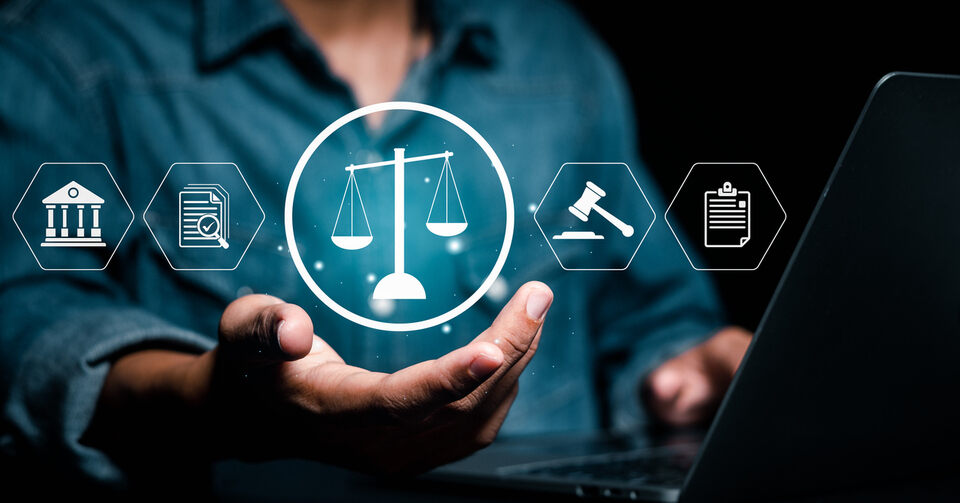
Old Language vs. New Reality: Who’s Really on the Hook?
Originally, AB 831 was written so broadly it could criminalize almost anyone involved, even players who just clicked on a sweepstakes promo. But after sharp opposition, the bill was adjusted to focus on intent and roles:
- Gone: The word “person” is out, so casual players aren’t prosecutable.
- In: The phrase “knowingly support” replaces loose language, putting responsibility on those who intend to assist these operations.
- Tightened: References to “promote” were trimmed back, focusing penalties on operators and those who knowingly aid them, not influencers or media outlets who are unintentionally involved.
In short: if you’re just playing, you’re mostly in the clear. If you help run, promote, or financially support a sweepstakes casino legally, you’re now in their crosshairs.
Why Tribe & DA Voices Shaped the Shift
When tribal leaders and San Bernardino County DA Jason Anderson raised alarms, the message was loud and clear: “This law isn’t about punishing players—it’s about stopping offshore operators.” Tribes warned these platforms were draining tribal revenues and undermining voter-backed gaming rights. Anderson added that the goal was to hit the companies knowingly running or supporting these operations—not the users.
Their push helped reshape the bill, focusing enforcement on the supply chain: platforms, processors, and affiliates—not everyday players.
Who’s Still in the Danger Zone
With the bill’s revised language, intent is everything—but if you’re knowingly helping these platforms operate, you’re still on the hook. Here’s who’s in the crosshairs:
- Payment Processors & Banks: If you’re moving money for sweeps sites and know it, you could face penalties. No more plausible deniability.
- Geolocation Services: Helping these platforms verify users are outside banned states? That could flag you as a facilitator.
- Game Developers & Platform Providers: Designing and hosting virtual slot games places you square in the enforcement zone.
- Media Affiliates & Influencers (like Seacrest-style promos): Promoting these platforms knowingly could land you in hot water. Not just casual mentions or sponsored posts.
- Ad Networks & Financial Firms: Even indirect support, like facilitating ads or payments, could spark liability if done with knowledge of the platform’s purpose.
Expect chills across the ecosystem—companies are already weighing legal cover, compliance rules, and language tweaks to stay compliant.
Who’s Pivoting After AB 831?
Some operators are already juggling their business models to stay on the right side of AB 831:
- Payment processors like Stripe or PayPal have quietly updated their terms and systems to flag dual-currency sweepstakes operations. Once tech teams realized the “knowingly support” clause could implicate them, compliance became top priority.
- Geolocation services are updating their systems to add extra check-boxes and records—so they can say, “Yep, we didn’t knowingly serve California users for these games.”
- Affiliate networks and micro-influencers who run sweepstakes ads (like promo-style segments by celebs or lifestyle bloggers) are reviewing contracts. Now, affiliates must confirm they weren’t purposely pushing sweepstakes sites.
- Game devs and platform hosts are talking to their legal teams about blocking access or rerouting California users so the games don’t operate where they’re banned.
These shifts aren’t just legal; they’re risk mitigation in action. Firms are either distancing from sweeps or locking in layers of proof to show they weren’t aware if regulators come calling.
What Comes Next
AB 831’s revised bills now land before the Senate Appropriations Committee on August 18. Stakeholders are lining up to fight for clarity, especially around the “knowingly support” threshold and how narrowly “supplier” can be defined. Will photographers, geo‑tech firms, or marketers get exemptions? That’s the battleground.
Final Take: Is It Enough, or Just the First Step?
The revised bill does what it should: safeguards players and puts the spotlight on bad actors and enablers. But the real question now is how it will play out in practice. Will platforms comply? Or will they find back doors? Will regulators have to start targeting ads or backend tech?
